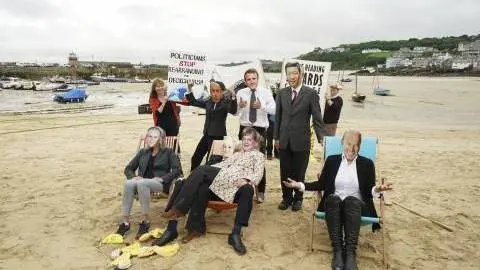Delta a dent but not a disaster for the UK economy
The UK's third wave of Covid-19 has stalled the recovery but hasn't so far tempered consumer confidence dramatically. The fourth quarter will be a bigger test. Meanwhile, we're now pencilling in the first Bank of England rate rise in November 2022
Delta has paused the recovery - but it's not been a disaster
As the summer slowly ends, there’s little doubt that the UK recovery has stalled since our last monthly economic update in July. The spread of the Delta variant, and the high rates of self-isolation that entailed until the rules were changed mid-August, only served to amplify the staff shortages being reported in various corners of the UK jobs market. PMIs have fallen off recent highs.
The UK economy has arguably weathered Covid-19’s third wave slightly better than we’d feared
But when it comes to consumer spending, the economy has arguably weathered Covid-19’s third wave slightly better than we’d feared. The risk was that the renewed spread of the virus would seriously temper the newly-fostered confidence in socialising and leaving home. So far though, that hasn’t really happened. Social spending on things like hotels and restaurants hit a fresh post-virus high in August, while a weekly ONS survey has registered only a small decline in willingness to leave home (though admittedly this is more pronounced among older age groups).
Spending on goods has slipped, though we think this is more likely down to a rebalancing towards newly-reopened services, and also marks a correction after the initial hype when shops opened up in April.
For now, we’re comfortable with our 1.5% growth projection for the current quarter, though this was already low relative to other forecasters.
The UK economic dashboard
The fourth quarter is more of a question mark
The fourth quarter is more of an unknown. The positive news from recent weeks is that hospitalisations have stayed comparatively low, suggesting that vaccines will help avoid a lockdown this winter. The counterpoint is that the number of hospital beds occupied are considerably higher than this time last year. With flu expected to also take off, negative headlines about NHS pressure may translate into greater consumer caution than we’re currently seeing.
Interestingly and despite the reasonably solid spending figures over recent weeks, consumers haven’t been running down the excess savings built up through successive lockdowns. And if it hasn’t happened so far, then it’s hard to see a ‘big bang’ moment where consumers begin to splash the cash this winter. Unemployment is also likely to drift back above 5% as the furlough scheme comes to an end.
In short, further gains in growth will be harder to achieve than during the bumper second quarter, when the economy grew by almost 5%. We expect GDP to recover to pre-virus levels early next year.
Inflation set to peak close to 4%
The summer has also heralded higher inflation forecasts. We now expect inflation to come close to 4% towards the end of this year and stay there into early 2022. Partly that’s because of supply chain issues, and the latest disruption in Asia points to renewed price pressure for Christmas shoppers. Higher wholesale gas prices have also led the regulator to announce a 12% hike in the energy price cap in October.
But the inflation picture should cool by this time next year. That suggests that talk of a rate hike in the first half of 2022 is a little premature, though we have brought forward our call to the fourth quarter of next year. Importantly, the Bank of England has said it will stop reinvestment proceeds from maturing gilts when rates hit 0.5%, and we expect that to happen in the second half of 2023. Policymakers have hinted they could actively sell gilts back into the market when Bank rate hits 1%, though in practice, that milestone feels very distant indeed.
This publication has been prepared by ING solely for information purposes irrespective of a particular user's means, financial situation or investment objectives. The information does not constitute investment recommendation, and nor is it investment, legal or tax advice or an offer or solicitation to purchase or sell any financial instrument. Read more
Download
Download article
2 September 2021
ING Monthly: Back from the beach, into the breach This bundle contains 11 Articles